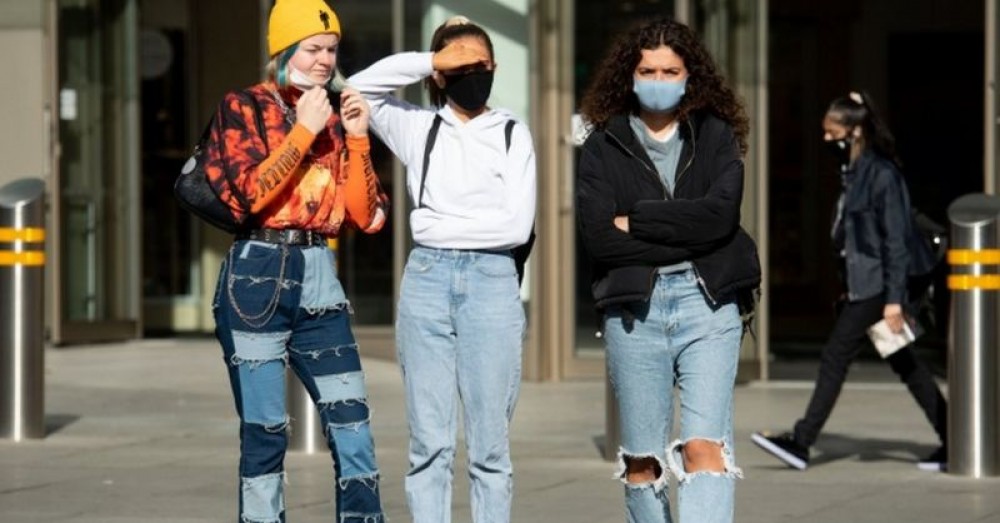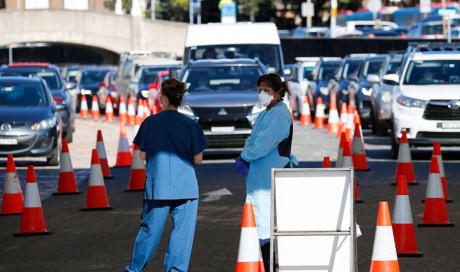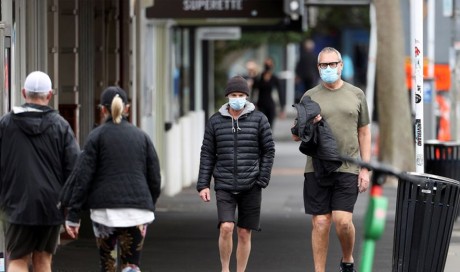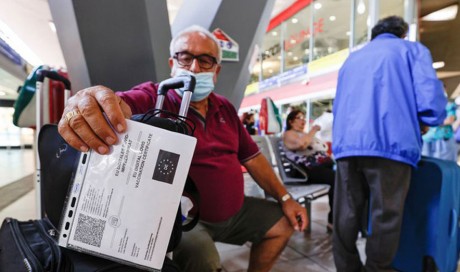France has reported a large jump in new Covid-19 cases ahead of a night-time curfew being imposed on Paris and eight other cities on Saturday.
A further 30,621 infections were confirmed on Thursday, up from 22,591 the day before.
The World Health Organization (WHO) has warned that tough restrictions are "absolutely necessary" to save lives.
Millions in Europe have been told they must live under strict new measures as governments battle a second wave.
From Saturday, socialising indoors will be banned in London, as the UK capital and other areas of England will be put under a higher Covid alert.
As well as France, Italy, Poland and Germany all recorded their largest daily rise in new cases on Thursday since mass testing began.
Russia recorded its highest number of daily fatalities since the start of the epidemic with 286 people reported to have died from the virus.
The WHO urged European governments "to step up" and take action as the continent passed a threshold of 1,000 deaths reported daily.
What is happening in France?
New restrictions were announced on Wednesday by President Emmanuel Macron to combat the soaring infection rate across France.
Residents of Paris, its suburbs and eight other cities including Marseille and Lyon will not be able to leave their homes without "valid" reason between 21:00 and 06:00 from Saturday for at least four weeks. Mr Macron said he aimed to reduce the daily rise in cases to 3,000.
Prime Minister Jean Castex said police would be deployed to enforce the curfew, but people will still be allowed to leave for work or to visit hospital or the pharmacy.
On Thursday, French police raided the homes of senior government and health officials as part of an investigation into their handling of the pandemic.
The government has faced criticism over shortages of equipment and slow response times.
How bad is the situation in Europe?
Covid-19 deaths are currently five times lower than they were in March and April, when the first wave hit the continent, the WHO's European director, Dr Hans Kluge, told a news conference on Thursday.
One reason for the increase in cases seen in recent weeks is more young people testing positive for the virus, he said, adding that the lower mortality rate was because that demographic was less likely to die from Covid-19 than older people.
But projections of the course of the disease in Europe were "not optimistic", he explained.
If European governments relax their restrictions, the course of the virus indicates that by January 2021 the daily mortality rate will be four to five times higher than it was during April, Dr Kluge said.
But if 95% of people wear masks and other social distancing measures are applied, Europe could avoid about 281,000 deaths by February, he added.
He said that governments must consider mental health and domestic violence when imposing restrictions, and do everything possible to keep schools open.
Meanwhile, the European Commission has called on countries to step up their preparations, advising governments to co-ordinate contact tracing and the eventual deployment of vaccines.
On Thursday European Commission Chief Ursula von der Leyen left an EU summit to go into self-isolation after a member of her office tested positive. She said she herself had tested negative, but would nonetheless self-isolate "as a precaution".
The spread of the virus has been accelerating across Europe in recent weeks after infections began to rise in August and September.
In the Czech Republic, which currently has the highest infection rate in Europe, cases have nearly doubled in October to reach a total of 139,290.
What are the latest restrictions being imposed?
- On Thursday, Poland designated red zones where schools and gyms will close, including in the capital Warsaw
- Schools in Italy's southern Campania region, including the city of Naples, are to close for two weeks, as the country recorded its highest daily rise of cases since mass testing began.
- In the Czech Republic, schools and bars have been shut down but infections are still soaring. The government said it was building its first field hospital for coronavirus patients and has has called on doctors working abroad to return home
- In Germany bars and restaurants in higher-risk areas must close early. The country recorded 6,638 new cases on Thursday - the highest daily figure since the start of the pandemic
- In Portugal, the government said gatherings would be limited to five people from Thursday. Weddings and baptisms can be attended by up to 50 people but university parties will be banned
- Catalonia also said restaurants in the Spanish region would only be allowed to serve takeaway. Gyms and cultural venues will be allowed to operate at 50% capacity, while shops and large shopping centres must be limited to 30% capacity
- In the Netherlands, all bars, restaurants and coffee shops closed on 14 October except for takeaway; households can have a maximum of three guests per day
- Movement is limited in the Russian capital Moscow, and from Monday senior schools (for children aged aged 13-18) will be closed
Share This Post















